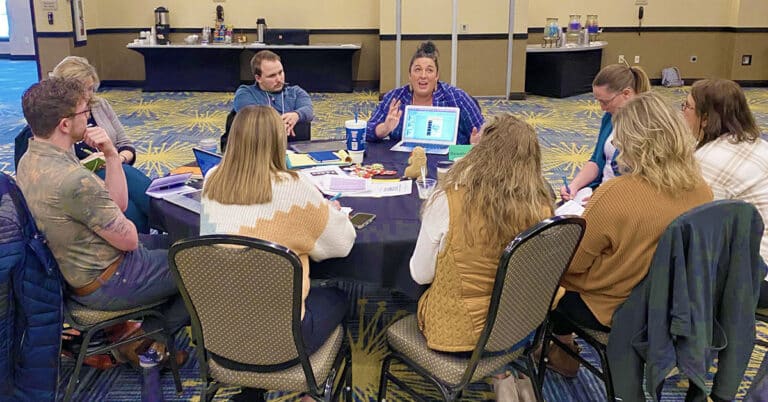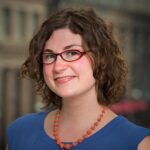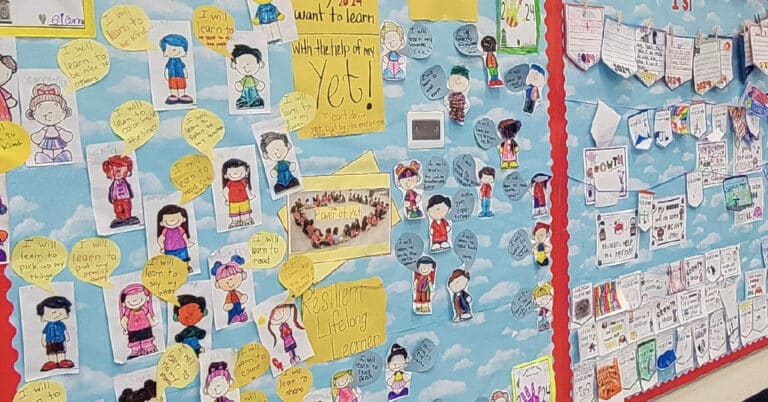This post was written by former KnowledgeWorks President and CEO Charles Ambrose, EdD.
How do you prepare this generation of learners to be ready for what’s next if you don’t know what’s next? The pace of change coupled with global challenges that we could not have anticipated six weeks ago underlines our responsibilities to these learners. That’s the challenge all of us face, particularly those of us in all sectors education.
A recent McKinsey & Company report examines how automation is changing and shaping the labor market. These shifts have an effect on local, state and national economies, as well as the institutions preparing the workforce of tomorrow. Education Week and The McKinsey Global Institute partnered to look at different communities to see how schools were adapting to the automation age. One big takeaway? Communities and schools that come together to define an educational ecosystem need to think globally but act locally, which is illustrated through profiles of four communities. I have seen that same finding lived out in the Kansas City region on the Missouri Innovation Campus and now through Ohio-based research at KnowledgeWorks.
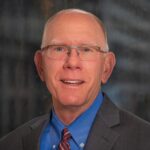
“Communities and schools that come together to define an educational ecosystem need to think globally but act locally.”
When I was a part of the University of Central Missouri community, we brought together local, state and national resources to form the Missouri Innovation Campus. That unique project, which is still expanding options for young adults across the Kansas City metro, gives students the opportunity to explore exciting educational opportunities in pursuit of high-demand job opportunities within the local community. It also empowers and instills confidence in students so they can successfully pursue a college completion path. Ultimately, the campus is helping students succeed both in school and beyond and is contributing to a strong Missouri economy. When the community and educational partners work together, it is actually possible to:
- Lower the cost of college
- Reduce the time it takes to move from high school to a four-year college degree by 50 percent
- Eliminate the skills gap practically ensuring that learners can be work force ready and fully employed at the completion of the program
- Remove the burden of student loan debt as a means to pay for college
The Missouri Innovation Campus wouldn’t be successful without strong partnerships with local businesses. Local business leaders both help inform instructional programs prepare students with skills needed in the workforce. They also provide on-the-job learning and training in the form of internships. Working with the University of Central Missouri, the local R-7 Lee’s Summit School District and the business community helped us create a program that prepares Missouri students for what’s next. By identifying talent early, these business partners lower their recruiting and retaining costs for their next generation of employees.
Another instance of thinking globally but acting locally is illustrated by a series of strategy guides created for three Ohio communities. To surface regional opportunities to redefine readiness for the emerging era, KnowledgeWorks, with support from the Martha Holden Jennings Foundation, worked with community leaders from Southeast, Southwest and Northeast Ohio to grapple with what the changing nature of work could mean for their regions. Some powerful takeaways from these convenings include:
- “Many of the people most likely to be adversely affects by these technological advances are not aware of them and their impact.”
- “How do we avoid a bigger gap between the ‘haves’ and the ‘have-nots’?”
- “These aren’t individual issues. They are structural issues.”
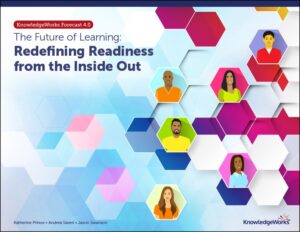
The toddlers of today will have graduated from college by 2040 and be entering the workforce. Will they be ready? Learn More
The takeaways from the individual communities are powerful, and they informed strategy guides that can help other communities engage in similar planning for the future.
At KnowledgeWorks, we partner with learning communities to ensure each student graduates ready for what’s next, no matter what comes next. That isn’t work that can be done by any one person, group or community. It’s done through strong partnerships and with a goal of improving future opportunities for our young people.
Discover how current trends could impact learning ten years from now and consider ways to shape a future where all students can thrive.
